How to Remove Ice From a Driveway — 6 Simple Tricks You Should Try Before Guests Arrive for the Holidays
Icy driveways are accident-prone and holiday persistent it seems, so here's how to make sure your home is free from frost and any potential mishaps
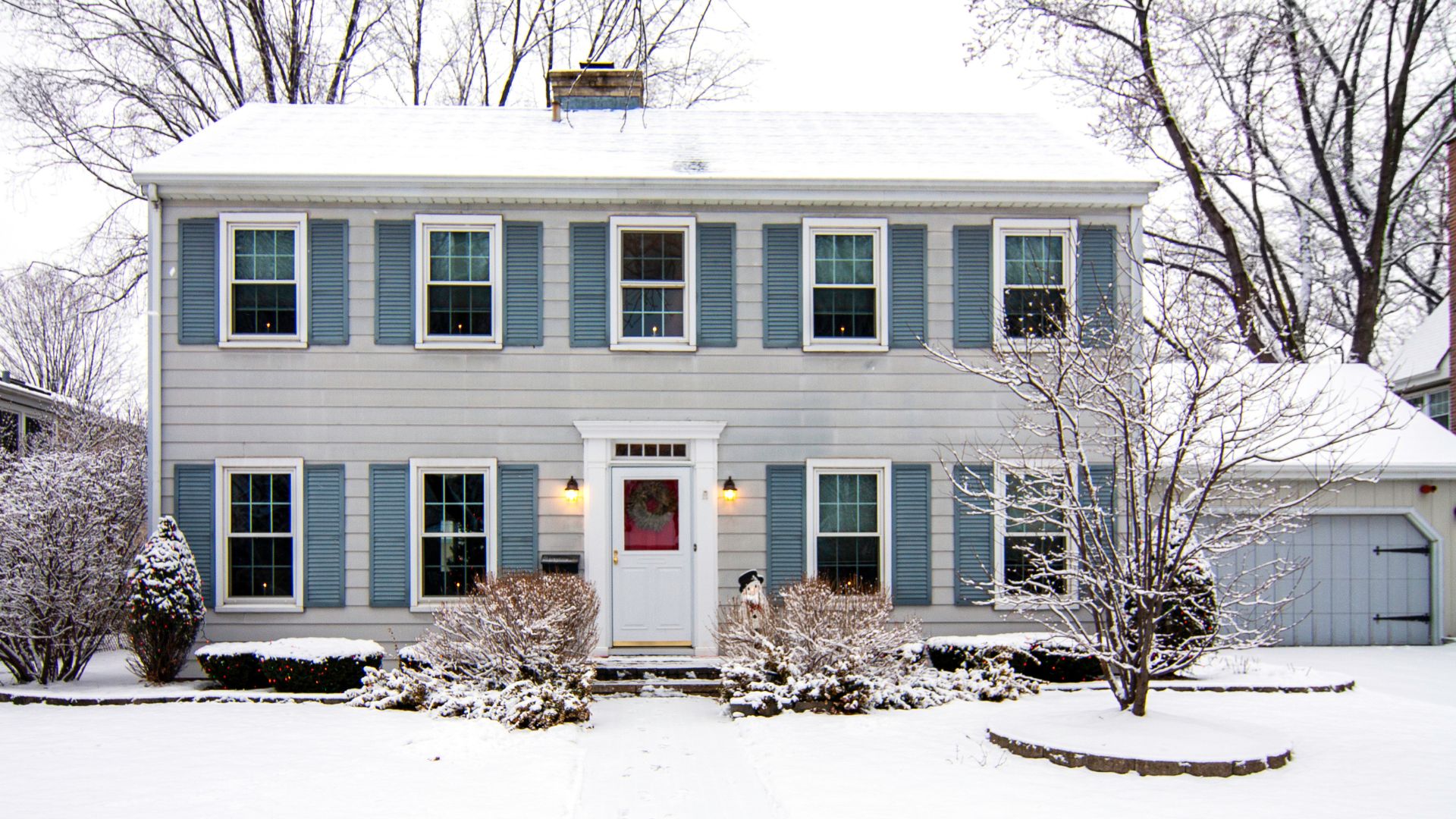

Now that the winds have shifted and the weather has gotten chilly, we're extensively focused on curating our home's interior environment to imbibe an enveloping ambiance. While this shift indoors is unavoidable, there are some outdoor spaces that require focused attention. And one that we recommend paying mind to now is your driveway.
As your guests pull onto your street and make their way to your home, the first thing they will take in is your home's exterior. And although snow-cloaked homes offer romantically unmatched curb appeal, the icy driveways are only cute in theory.
These slippery surfaces are susceptible to accidents, and the last thing you need is for guests to hurt themselves before the festive fun even begins. Plus, pulling into your own driveway can be a tricky task when it's ice city. Consider this your trusty guide to thawing your driveway and upping your curb appeal by several points, so you have the most stunning winter home on the block.
1. Choose Concrete-Safe Ice Melts
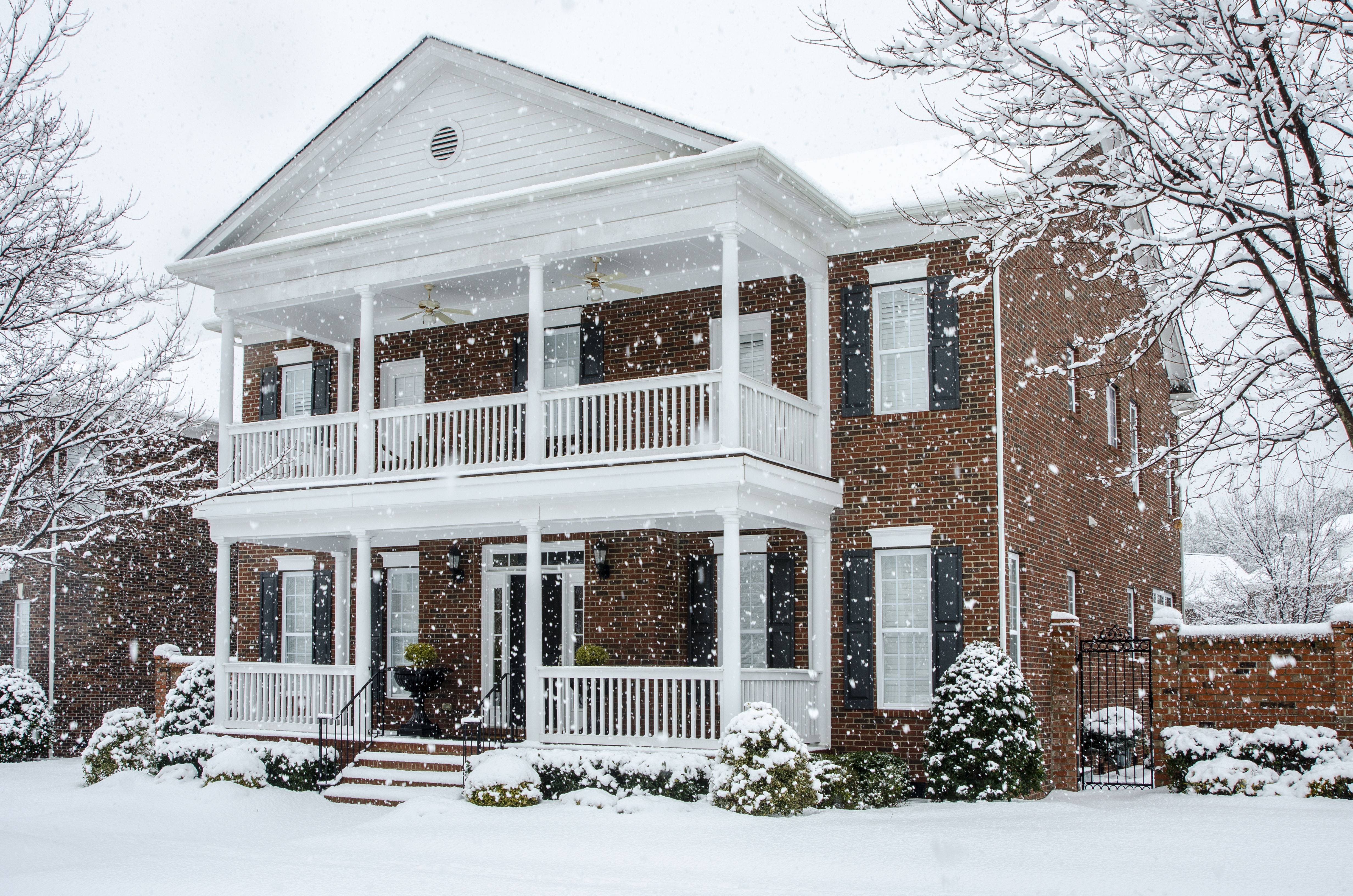
In conversation with Bill Bencker, a concrete contractor at Ace Avant Concrete Construction, he tells us that not all ice melts are created equal.
"Look for ones labeled as safe for concrete, like calcium magnesium acetate or magnesium chloride," he advises. "These are less harsh than regular rock salt, which can wear down your driveway over time."
We recommend this Safe Thaw Industrial Strength Salt-Free Ice Melter from Walmart for an environment-friendly solution that's perfect for a quick icy driveway fix. It'll remove any and all ice while making your driveway look more expensive, all in one go.
2. Shovel Before Ice Has a Chance to Set

"Clear snow off your driveway as soon as possible to keep it from packing down and freezing into ice," says Bill. "A good snow shovel or snow blower can make this job much easier."
One of the more classic solutions to defrosting your driveway is to go old-school and grab your shovel. It may involve a little more elbow grease but it won't fail you when you're in a stitch.
We spotted this sleek Flat Ice Scraper from Amazon, and it comes with a set of three metal handles for various outdoor tasks, including weed removal and snow scraping. While our pre-holiday cleaning list usually lists out everything we have to do indoors, sorting your outdoor space is equally important and a little shoveling goes a long way.
3. Sprinkle Sand for Traction

If you're unable to rid your driveway of ice at the time but need to be able to get in and out without having to worry about slipping, then sand is your next best solution. While de-icing your driveway, it will also give your home that freshly cleared look that will make your front yard look more beautiful than ever.
"Sand won’t melt the ice, but it gives you extra grip, which is helpful on slippery patches," Bill explains. "It’s a great backup if the temperature is too low for ice melt to work."
By stowing away some sand, like this Quikrete HardScapes Brown Paver Sand from Walmart, you can rest easy knowing that you have a backup solution to rely on until you're able to clear your driveway otherwise.
4. Apply DIY Solutions Before the Storm
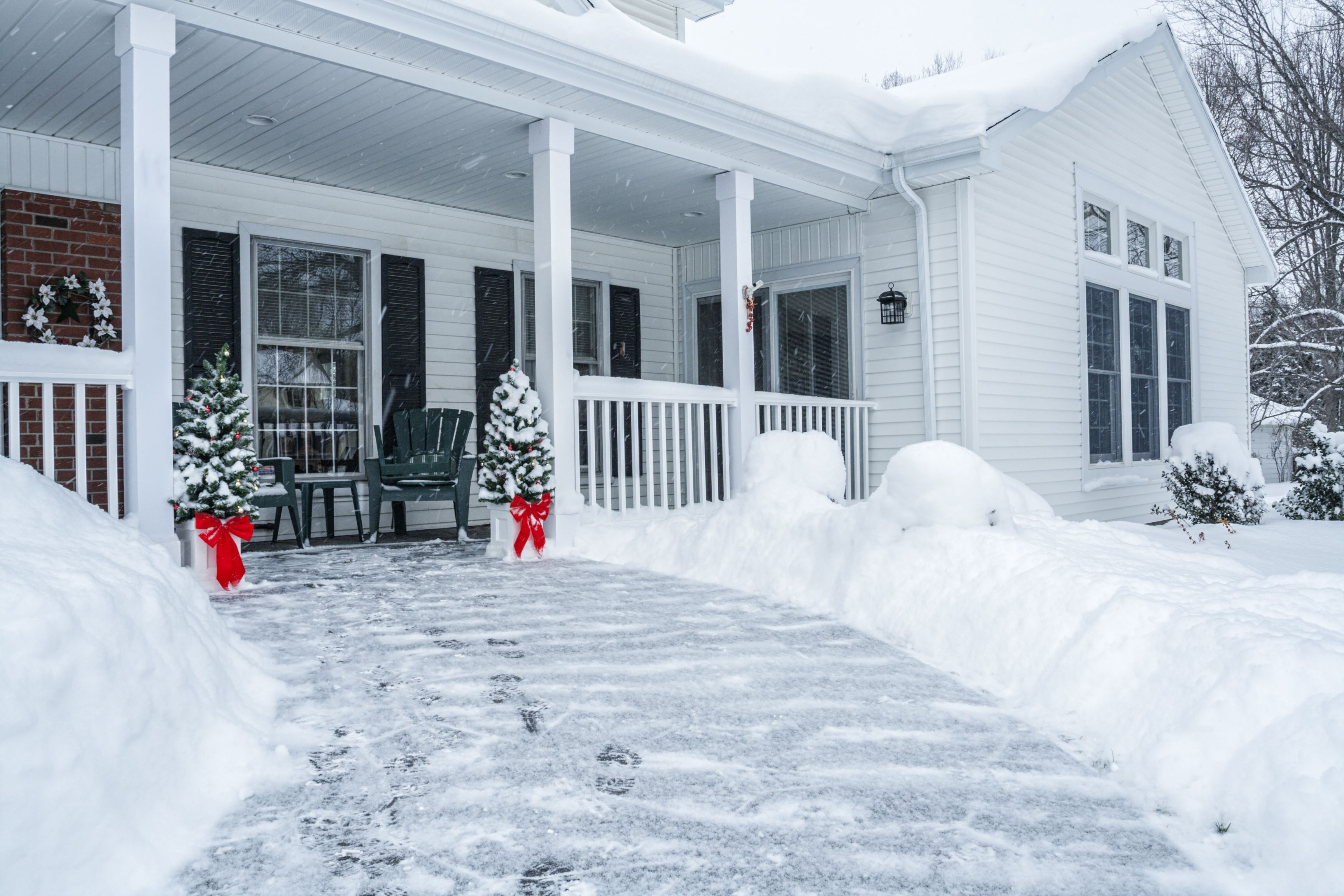
Bill tells us that mixing salt with water and spreading it on your driveway ahead of a storm can help keep ice from bonding to the surface. "It’s a quick and easy way to make cleanup simpler," he notes.
According to Pavel Buyeu, co-founder and CEO at LocalProBook, beet juice brine is a lesser-known eco-friendly solution. "It lowers the freezing point of ice and can be mixed with rock salt for faster melting," he says. "It’s also less harmful to vegetation and driveways."
While winterizing your home and your driveway by applying your beet juice brine, just be sure to keep it from sitting stagnant for too long as its natural colorants could stain the flooring.
5. Use Small Gravel or Kitty Litter
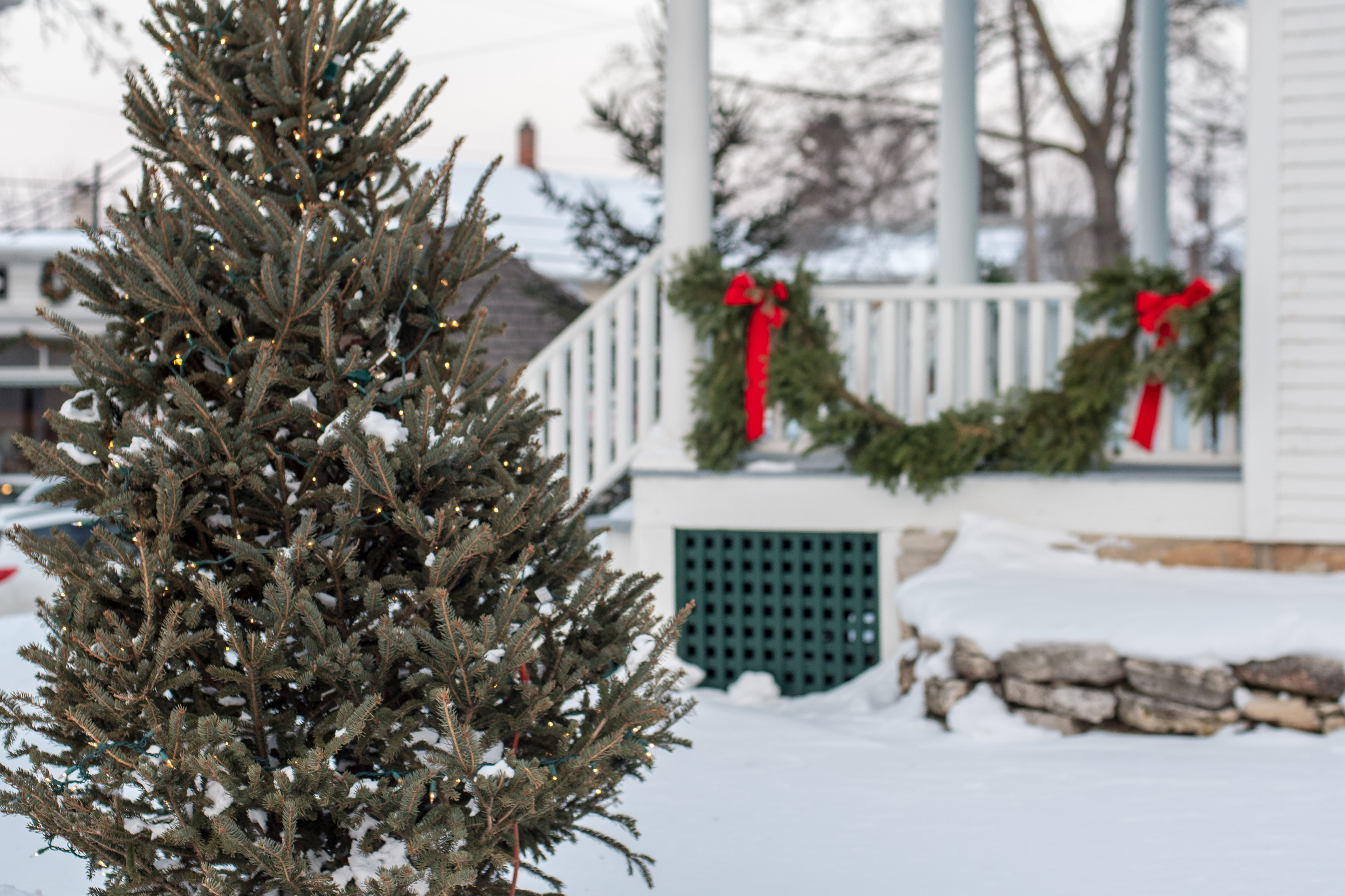
If you need more traction to aid in the process of removing ice from your front yard, Bill tells us that you can always reach for small gravel or kitty litter.
"Non-clumping kitty litter or small gravel can help, especially on particularly slick spots," he says. "Just avoid clay-based litter as it can become extremely messy very quickly when wet."
This SmartCat All Natural Clumping Cat Litter from Amazon is grass-based, offering a clay alternative that's great if you have pets or even just an icy driveway that needs fixing.
6. Consider a Heated Mat
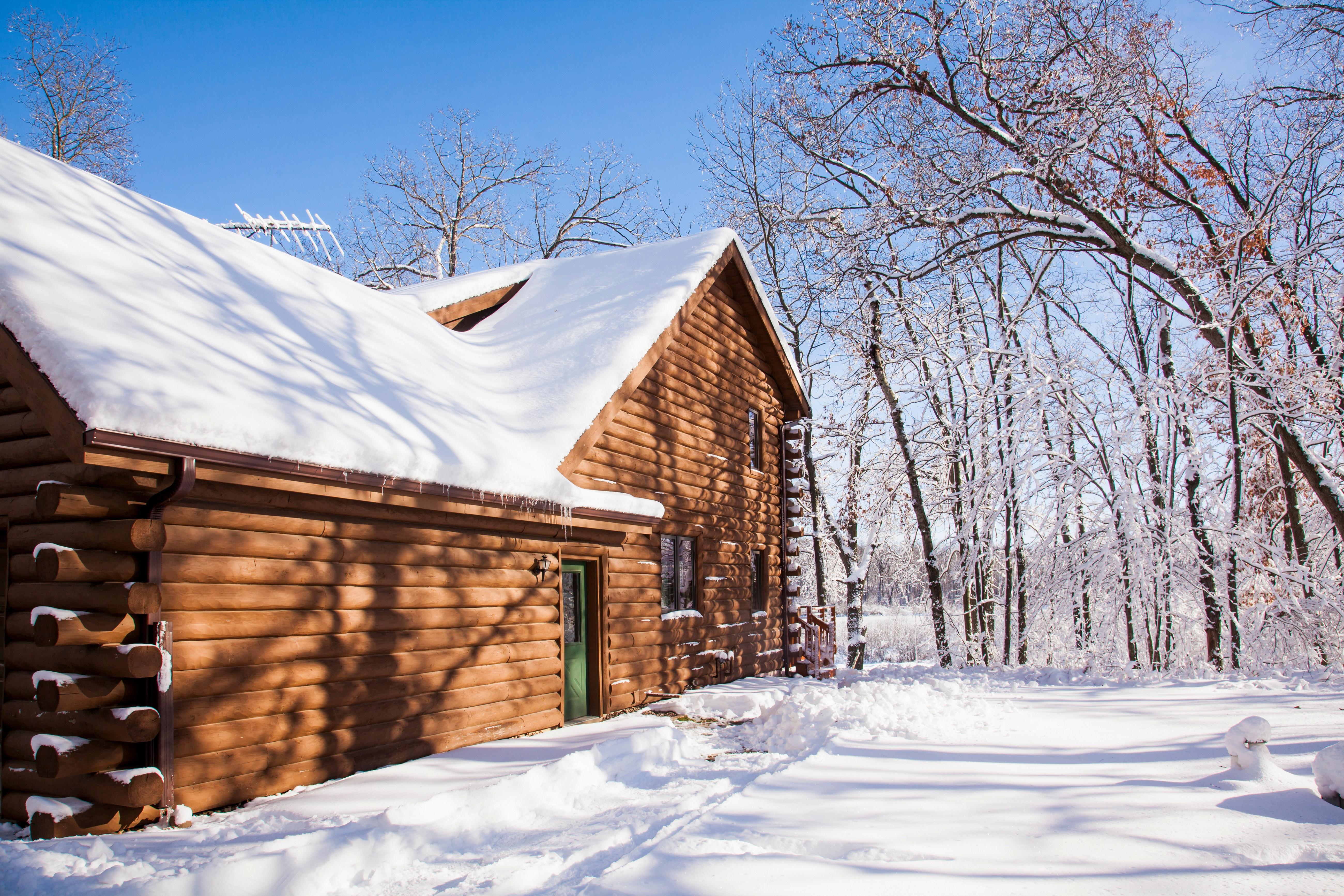
"Heated driveway mats are a great option if you want to skip the constant shoveling and de-icing," says Bill. "They’re a bit of an investment, but they’re super effective and last for years."
Pavel also finds radiant heat mats to be another absolute answer to your wintry driveway problems. "While not an immediate fix, installing radiant heat mats under the driveway surface is a long-term solution," he explains. "It allows you to keep your driveway ice-free without manual labor."
This HeatTrak Heated Snow Melting Mat from Amazon is highly rated and comes in four different sizes, so you can choose the dimensions that best fit your driveway.
You heard the experts, there are plenty of ways to transform your icy driveway from snowy to safe. So while you winterize your garden and prepare the rest of your home for winter, we recommend tending to your driveway as well.
Aside from elevating your curb appeal and securing your driveway to keep your guests out of harm's way, thawing your driveway will also benefit your home in a myriad of other ways.
But take it from us, this is one chore you don't want to put off. It's best to take care of this space now, instead of letting the ice build up to a point of tedious return.
FAQs
What Stops Ice From Forming on a Driveway?

Prevention is better than cure and in the case of iced-up driveways, there appear to be a couple of great solutions that can help nip this process in the bud.
1. Applying a Waterproofing Layer: "Special compounds are used to prevent moisture from penetrating cracks and pores of the asphalt, which prevents the cracking of the surface," explains Pavel. "When freezing, water expands and destroys your driveway."
2. Use Hydrophobic Mats or Snow Blankets: "These reusable covers keep snow and ice off the driveway," he says. "They’re an upfront investment, but they save hours of labor during icy conditions."
3. Install Weather Strips on Garage Edges: He tells us that water seepage from your garage onto the driveway often creates thin ice layers. His suggestion to homeowners is to introduce weather stripping, as it keeps moisture inside and reduces the risk of icy patches.
4. Regular Maintenance: "Keeping the driveway clean of debris, cracks sealed, and the slope adjusted for proper drainage reduces the likelihood of standing water freezing into ice," he notes.
Is Hot Water a Good Idea for Removing Ice?
"No," says Bill. "Pouring hot water on ice might melt it at first, but as soon as it cools, it can refreeze and leave you with an even slipperier surface."
On top of that, he also points out that sudden temperature changes could crack concrete if it’s really cold. "Stick to ice melts or physical removal methods instead," he suggests. "They’re much safer and more effective."
Pavel also reaffirms that hot water and ice aren't a good combination. He recommends using a controlled de-icing product instead. "If you insist on using water, always follow up with an application of sand or salt," he adds. "This will prevent the melted water from refreezing."
Be The First To Know
The Livingetc newsletters are your inside source for what’s shaping interiors now - and what’s next. Discover trend forecasts, smart style ideas, and curated shopping inspiration that brings design to life. Subscribe today and stay ahead of the curve.

Amiya is a Home Wellness Writer at Livingetc. She recently graduated with a Masters Degree in Magazine Journalism from City, University of London, and has lent her words to beauty, fashion, and health sections of lifestyle publications including Harper’s Bazaar and Women’s Health. Her experience as a research analyst has equipped her with an eye for emerging trends. When she’s off the clock, she can be found reading, listening to music, or overanalyzing her latest Co-Star update.
-
 My 10 Favorite Designs at Milan Design Week 2025 — Out of the Hundreds of Pieces I Saw
My 10 Favorite Designs at Milan Design Week 2025 — Out of the Hundreds of Pieces I SawThere is a new elegance, color, and shape being shown in Milan this week, and these are the pieces that caught my eye
By Pip Rich
-
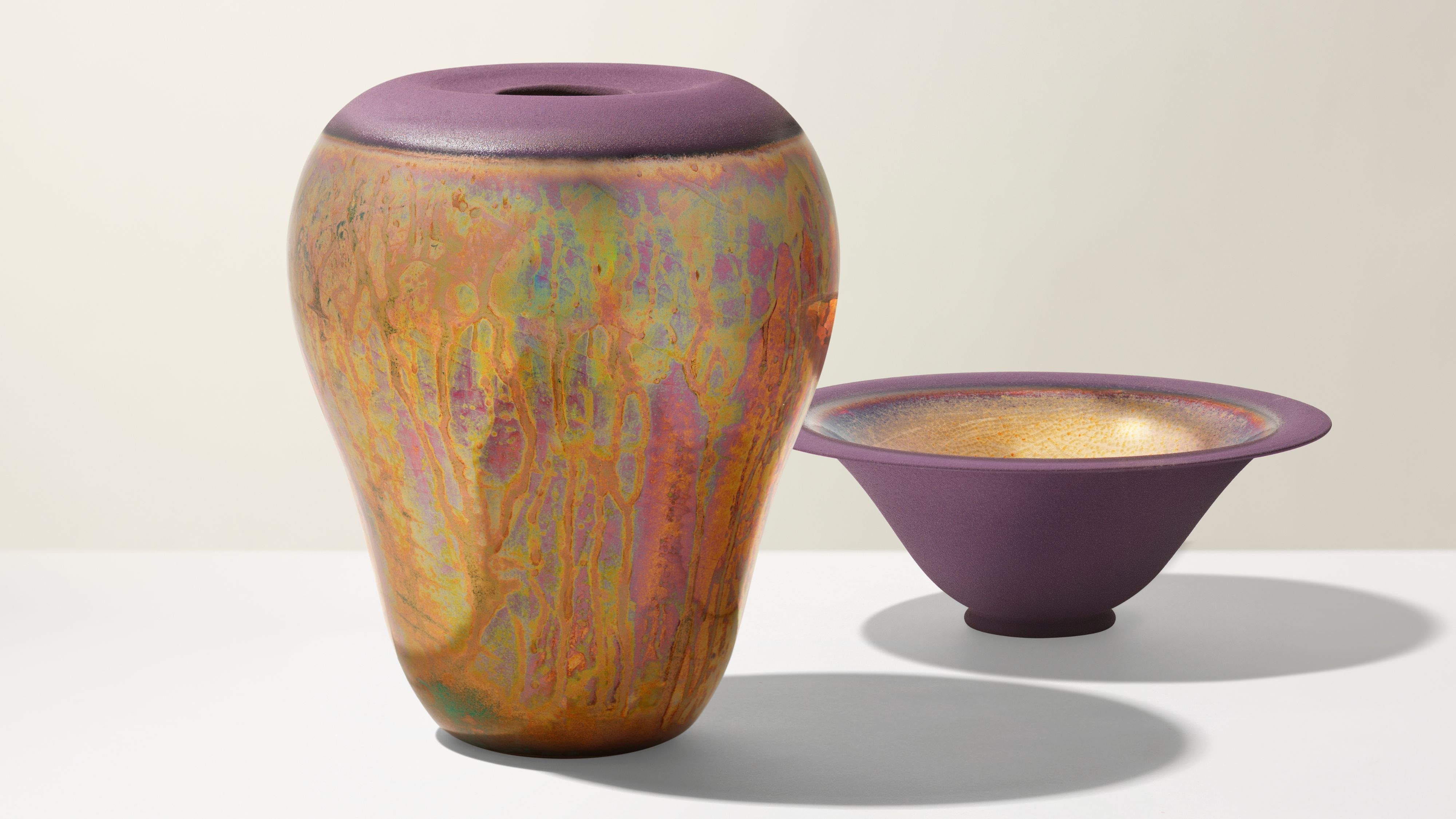 Iridescence Is Chrome’s More Playful, Hard-to-Define Cousin — And You're About to See It Everywhere
Iridescence Is Chrome’s More Playful, Hard-to-Define Cousin — And You're About to See It EverywhereThis kinetic finish signals a broader shift toward surfaces that move, shimmer, and surprise. Here's where to find it now
By Julia Demer
-
 Biophilic Decluttering — What to Take Out of Your Home (and What to Put in) for a More Natural Home
Biophilic Decluttering — What to Take Out of Your Home (and What to Put in) for a More Natural HomeTry your hand at biophilic decluttering to ground your interiors, connect to the environment, and cure chronic clutter in one go. Here's how.
By Amiya Baratan
-
 The 10 Different Types of Kitchen Taps — And the Pros and Cons of Each One to Know Before You Pick
The 10 Different Types of Kitchen Taps — And the Pros and Cons of Each One to Know Before You PickFrom sleek pull-outs to vintage bridge taps, explore 10 kitchen tap styles that mix function, flair, and a splash of cool
By Linda Clayton
-
 How Much Does an Extension Cost in 2025? Renovation and Design Experts Break Down Your Budget
How Much Does an Extension Cost in 2025? Renovation and Design Experts Break Down Your BudgetExplore how much different types of extensions cost in 2025 to budget for your project accurately
By Amy Reeves
-
 9 Bathroom Storage Mistakes You're Probably Making That Make Using This Space Much Harder — And What to Do Instead
9 Bathroom Storage Mistakes You're Probably Making That Make Using This Space Much Harder — And What to Do InsteadDiscover which mistakes are to blame for your overcrowded and cluttered bathroom
By Seraphina Kyprios
-
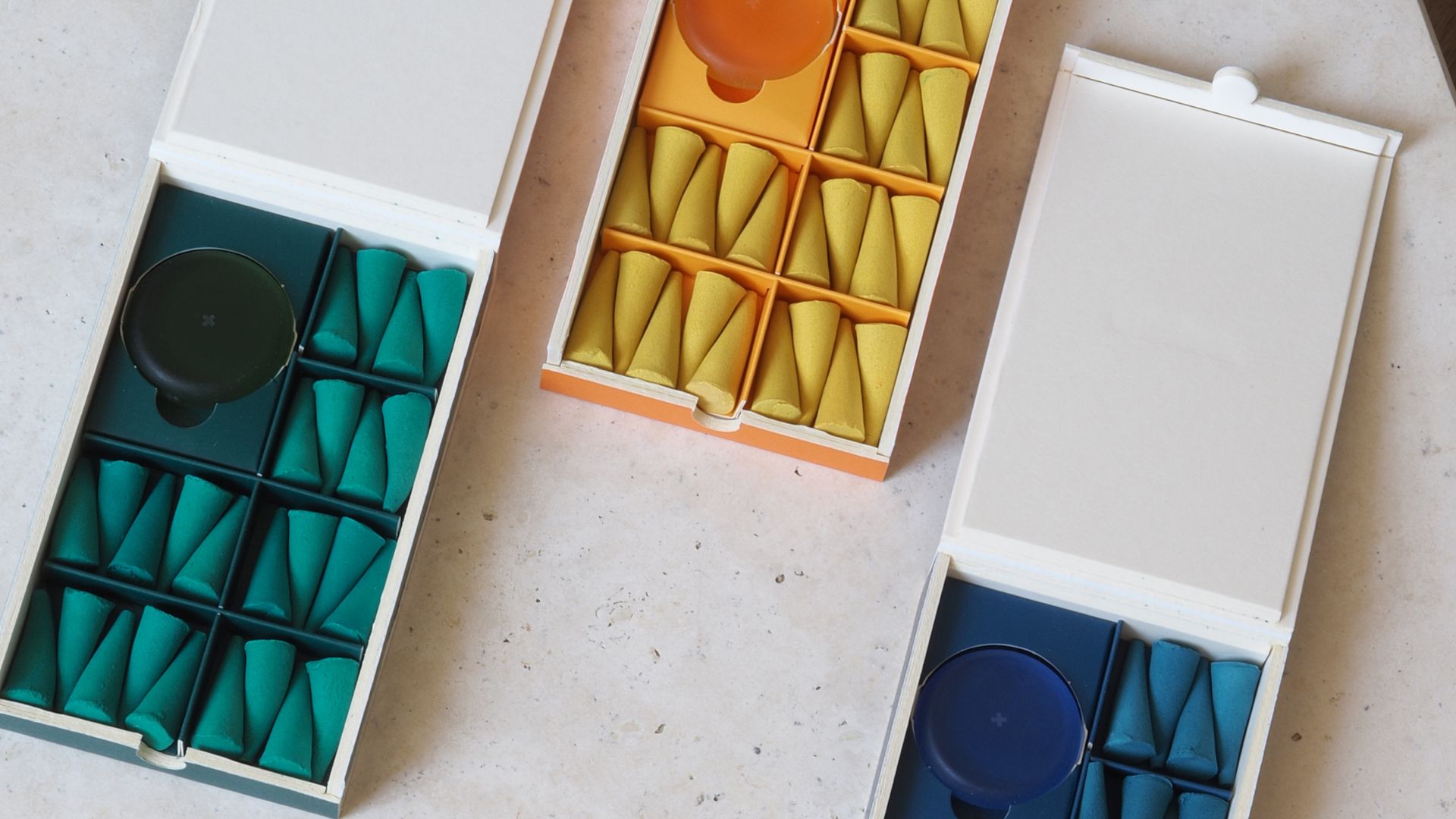 These 'Scenting Droplets' Might Be the Coolest (and Most Stylish) Way to Make Your Home Smell Amazing
These 'Scenting Droplets' Might Be the Coolest (and Most Stylish) Way to Make Your Home Smell AmazingIf you're looking to switch out your incense sticks for something more fun, then you should know about Ripple+'s incense droplets. Let me introduce you.
By Amiya Baratan
-
 The Japanese Principle of Iki (粋) Is All About 'Refined Elegance' — Here's How to Embrace It in Your Home
The Japanese Principle of Iki (粋) Is All About 'Refined Elegance' — Here's How to Embrace It in Your HomeIf your interior vibe is all about refined elegance and opulent minimalism, you need to know about the Japanese principle of 'Iki'. Here's how to bring it home.
By Amiya Baratan
-
 What Can I Choose Instead of Brass Taps? 4 Finishes That Are Emerging in 2025's Kitchens and Bathrooms
What Can I Choose Instead of Brass Taps? 4 Finishes That Are Emerging in 2025's Kitchens and BathroomsIf you want to try something a little different for your kitchen or bathroom finishes, these are the trending styles in taps beyond classic brass
By Seraphina Kyprios
-
 Kris Jenner’s 'All-Green' Glass Fridge Is My Organization Inspo of the Week — Here Are 5 Smart Storage Takeaways I'll Be Adopting
Kris Jenner’s 'All-Green' Glass Fridge Is My Organization Inspo of the Week — Here Are 5 Smart Storage Takeaways I'll Be AdoptingIf you're looking for fridgescaping inspiration, you might not think to look to Kris. But her all-green fridge says otherwise. Here are five tips we've learnt.
By Amiya Baratan